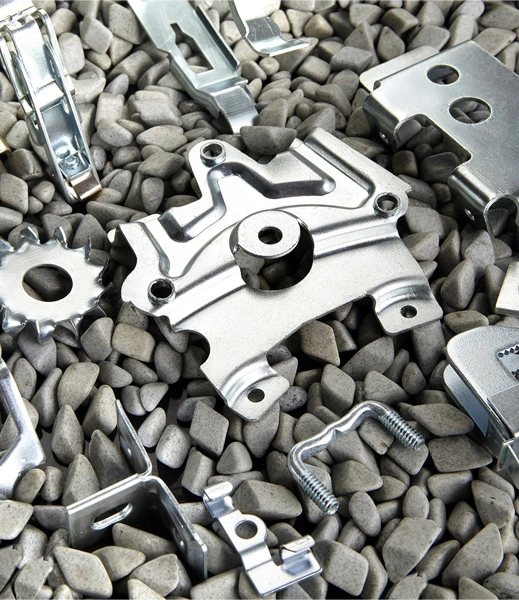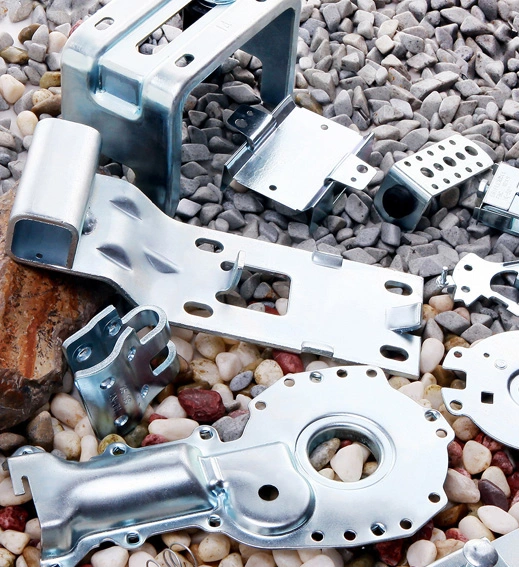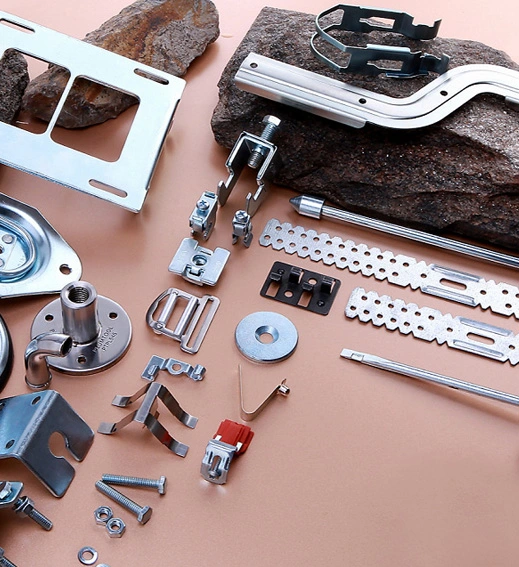
Progressive die stamping services are the most popular stamping method. As one of leading progressive die stamping manufacturers, Yixing Technology provides progressive die stamping parts services with premium accuracy in large quantities. As a China progressive stamping inc, We can also export progressive die services abroad.
Our progressive die stamping services use a multi-station press machine to perform multiple stamping processes in a single stroke, continuously moving the strip material to create parts with extreme accuracy. This method is ideal for producing large quantities of small, complex parts with consistent quality.
Whether you need compound die stamping or progressive die stamping, Yixing Technology's expertise ensures the best solution based on your part's size, complexity, and production volume. Progressive die stamping is particularly effective for parts with material thicknesses ranging from 0.1 to 3.0 millimeters, allowing us to create everything from simple components to intricate designs, all while maintaining cost-effectiveness.
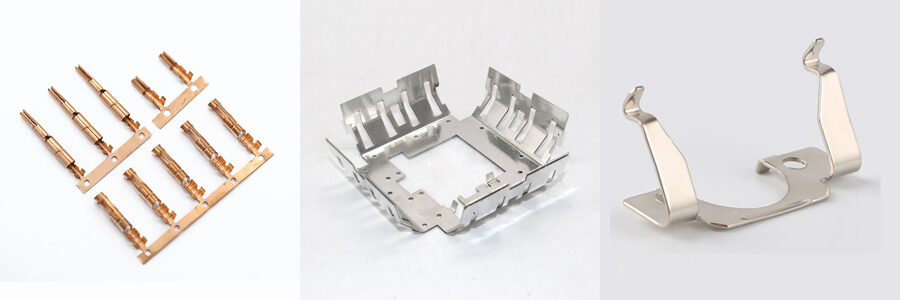
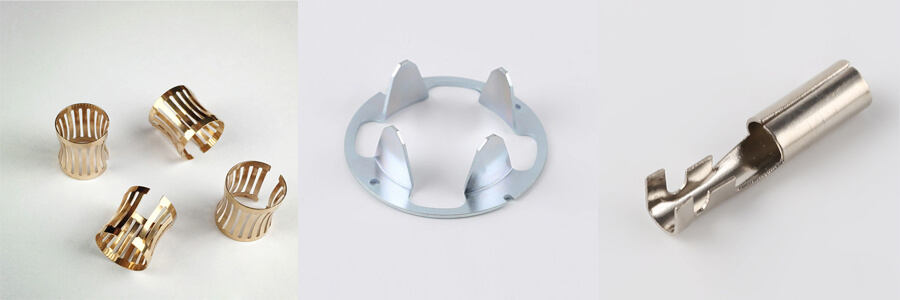
At Yixing Technology, our custom progressive die stamping services utilize a wide range of metals and alloys to produce high-performance, precision-engineered parts. Yixing Technology's expertise in progressive die stamping guarantees that the materials chosen are perfectly suited to your design specifications and performance requirements, delivering parts that perform flawlessly over time.
| Material | Grade |
| Carbon steel | S235, S345, SPCC, SPEC, CRS, HRS, DC01, SAPH440 etc |
| Aluminum alloys | AL5052, AL5754,AL6061, AL6063, AL1060 etc |
| Stainless steel | SS201,SS304,SS316, etc |
| Copper | C10100,C11000,C12200,GB/T1, T2,T3 etc |
| Brass | C27200,C36000,C37700,H63, HPb63-3, HPb59-1 etc |
| Cold or hot dip galvanized sheet | SGCC, SECC etc |
| ZINCALUME steel | DC01+AZ150 |
| Titanium/Tin/Spring steel/Manganese steel etc | / |
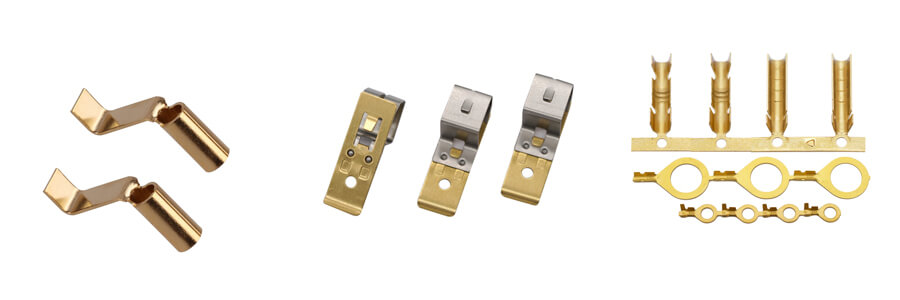
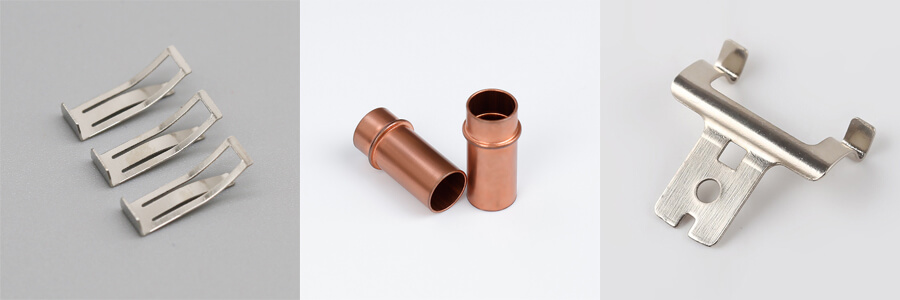

Expertise in Progressive Stamping: As one of leading progressive stamping suppliers, Yixing Technology's progressive stamping service is not just one of our many different capabilities. This is an ability that we are proud of and excel in. Our progressive dies services have been exported to countries such as the United States, Canada, and Europe.

Cost-Effective Production Solutions: Our progressive die process gradually changes the parts as they pass through each workstation and delivers the completed parts to the product chute for final packaging. The rapid and large-scale production of progressive molds helps customers greatly reduce procurement costs and achieve profit growth.

Advanced Stamping Capabilities: We use highly advanced stamping machines with stamping capabilities ranging from 46 tons to 630 tons, with a tolerance of ± 0.0005 inches. The thickness of various materials such as aluminum, stainless steel, copper, nickel, and brass ranges from 0.005 inches to. 500 inches.

Professional Engineering and Customization: Yixing Technology provides professional sheet metal fabrication services. Our engineers use the most popular software, such as Auto CAD and Unigraphics, as well as MASTERCAM software for CNC machining and wire cutting, to develop customized molds for our precision metal stamping services.











In progressive die stamping, the part is in the metal strip from the beginning to the end until all the features are reached. The process cannot be disconnected or stopped halfway. While in transfer die stamping, the part can be transferred freely and shaped by each die until it is complete.
Progressive die stamping is ideal for small products like terminals, connectors, shields, shrapnel etc in large quantities while transfer die stamping is more suitable for big size part undergo multiple processes, such as shells, frames and structural components.
The production speed of transfer die stamping is much longer because the part will be transferred between different machines by hand or using an automated mechanical transport system. Progressive stamping needs no transferring and all the processes finish in one machine.
If classified according to the degree of combination of different processes, stamping molds can be divided into single punch molds, compound stamping molds, progressive molds, and transfer molds.
1. Single punch mold
Single punch mold refers to a mold that can only complete one stamping process during the working process of a press.
2. Compound mold
In one stroke of the press, the compound die can complete two or more stamping processes simultaneously at the same workstation.
3. Progressive mold
Progressive molds, also known as continuous molds, have two or more workstations and can complete two or more stamping processes at different workstations.
4. Transfer mold
The transfer mold can use a robotic arm for transmission, greatly improving production efficiency, while also reducing manufacturing costs and saving material costs. The transfer mold combines the advantages of single process mold and progressive mold, and has the characteristics of quality, safety, stability, and reliability.
Absolutely! We provide tailored solutions to meet specific design, material, and performance requirements, making us a top choice for progressive stamping manufacturers worldwide.

